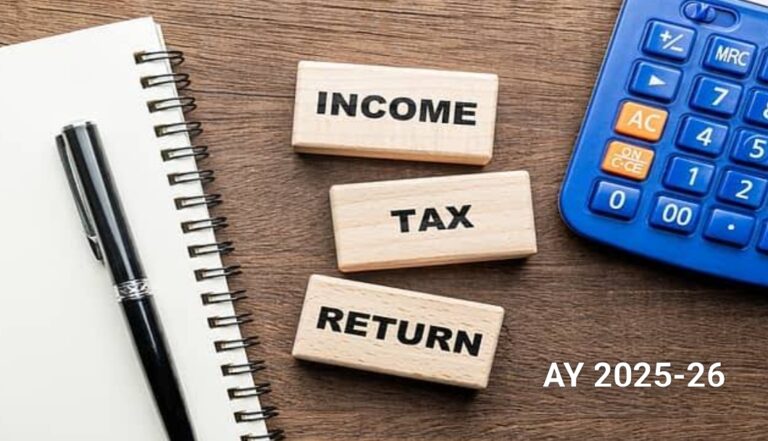Income Tax Notice Triggers: Common Reasons You May Get an ITR Notice for AY 2025-26
As the deadline to file Income Tax Returns (ITR) for Financial Year 2024-25 (Assessment Year 2025-26) approaches on September 15, 2025, taxpayers need to be extra cautious—not just while filing their returns but also after submission.
Filing your ITR does not guarantee closure. The Income Tax Department has intensified scrutiny, with nearly 1.65 lakh cases already selected for detailed assessment under Section 143(2)—a significant rise compared to previous years.
Why You May Receive an Income Tax Notice
Here are some of the most common reasons individuals receive tax notices:
1. Mismatch Between TDS and Reported Income
A frequent reason for notices is when the income declared in your ITR does not match the details reflected in Form 26AS or the Annual Information Statement (AIS). Discrepancies in Tax Deducted at Source (TDS) are particularly common among salaried employees and freelancers.
2. Non-Reporting of All Income Sources
Failing to disclose all sources of income—such as interest earned on savings accounts, fixed deposits, rental income, or capital gains from shares, cryptocurrency, or overseas investments—can trigger a notice. Remember, even tax-exempt income should be reported to avoid discrepancies.
3. False or Inflated Deduction Claims
Claiming deductions under Section 80C, 80D, or HRA exemptions without valid proof can attract scrutiny. As per tax experts, underreporting may lead to a 50% penalty, while intentional misreporting—like submitting fake rent receipts or fabricated capital gains—may result in a 200% penalty under Section 270A.
4. Sudden Drop in Income
A significant drop in declared income compared to previous years, especially for salaried individuals, could lead to questioning. Ensure you have proper documentation, such as revised pay slips or layoff letters, to justify the reduction.
5. Unreported High-Value Transactions
The Income Tax Department closely monitors high-value financial activities. You may get a notice if such transactions are not reflected in your ITR. Some examples include:
✅ Cash deposits exceeding ₹10 lakh in a financial year
✅ Credit card bill payments over ₹2 lakh
✅ Mutual fund purchases of ₹2 lakh or more
✅ Investments in bonds or debentures above ₹5 lakh
✅ Equity investments over ₹1 lakh
✅ Property transactions exceeding ₹30 lakh
✅ Investments in RBI bonds worth more than ₹5 lakh
6. Job Change Without Proper Disclosure
Switching jobs during the financial year and failing to consolidate Form 16s or properly disclose total income can lead to mismatches, triggering tax notices.
7. Incorrect ITR Form Selection
Using the wrong ITR form can result in incomplete income disclosure. Leading tax platforms caution that this mistake can attract penalties for underreporting or misreporting of income.
8. Fake or Omitted Financial Entries
As per Section 271AAD, any forged documents, undisclosed bank accounts, or manipulated financial data detected during assessment can lead to penalties. Ensuring accuracy and transparency in your ITR is essential.
What To Do If You Receive an Income Tax Notice
Receiving a tax notice can be stressful, but timely and accurate action can help you resolve it smoothly:
✔ Verify Details:
Ensure the notice is genuinely addressed to you and contains a valid Document Identification Number (DIN).
✔ Understand the Reason:
Identify the section under which the notice is issued, such as:
- Section 139(9) – Defective return
- Section 143(2) – Scrutiny notice
✔ Collect Relevant Documents:
Gather supporting documents for all declared income, deductions, exemptions, and high-value transactions.
✔ Seek Professional Help:
Consult a qualified tax expert or Chartered Accountant to draft an appropriate response and avoid penalties.
✔ Respond Within Deadline:
Adhere to the response window mentioned in the notice to prevent further legal action or penalties.
Final Thoughts
Filing your ITR accurately and disclosing all required information is the best way to avoid scrutiny. With increased monitoring by the tax department, it’s crucial to double-check all income, deductions, and transactions before filing. If a notice arrives, staying calm, consulting a professional, and responding promptly can help you handle the situation effectively.
